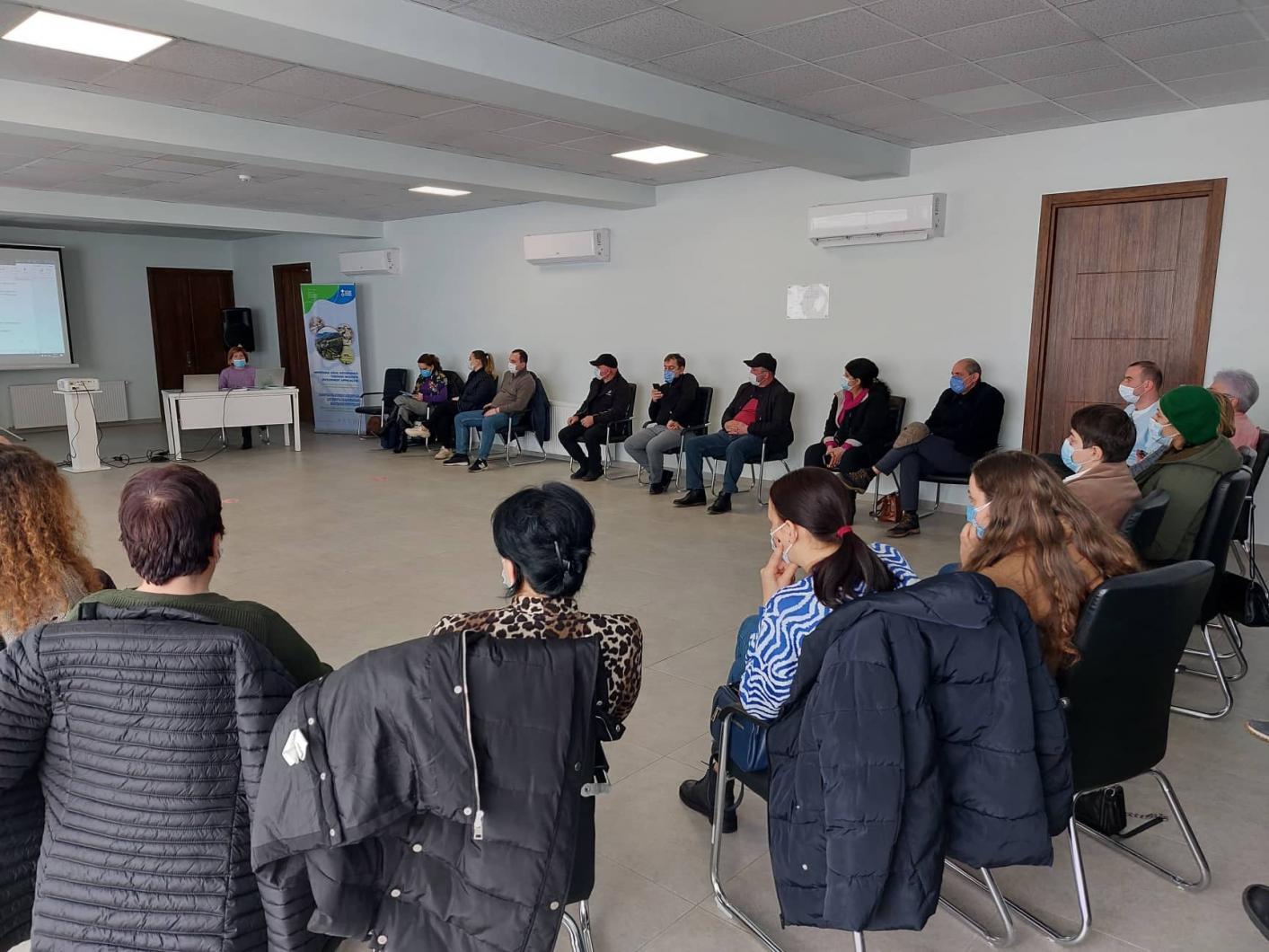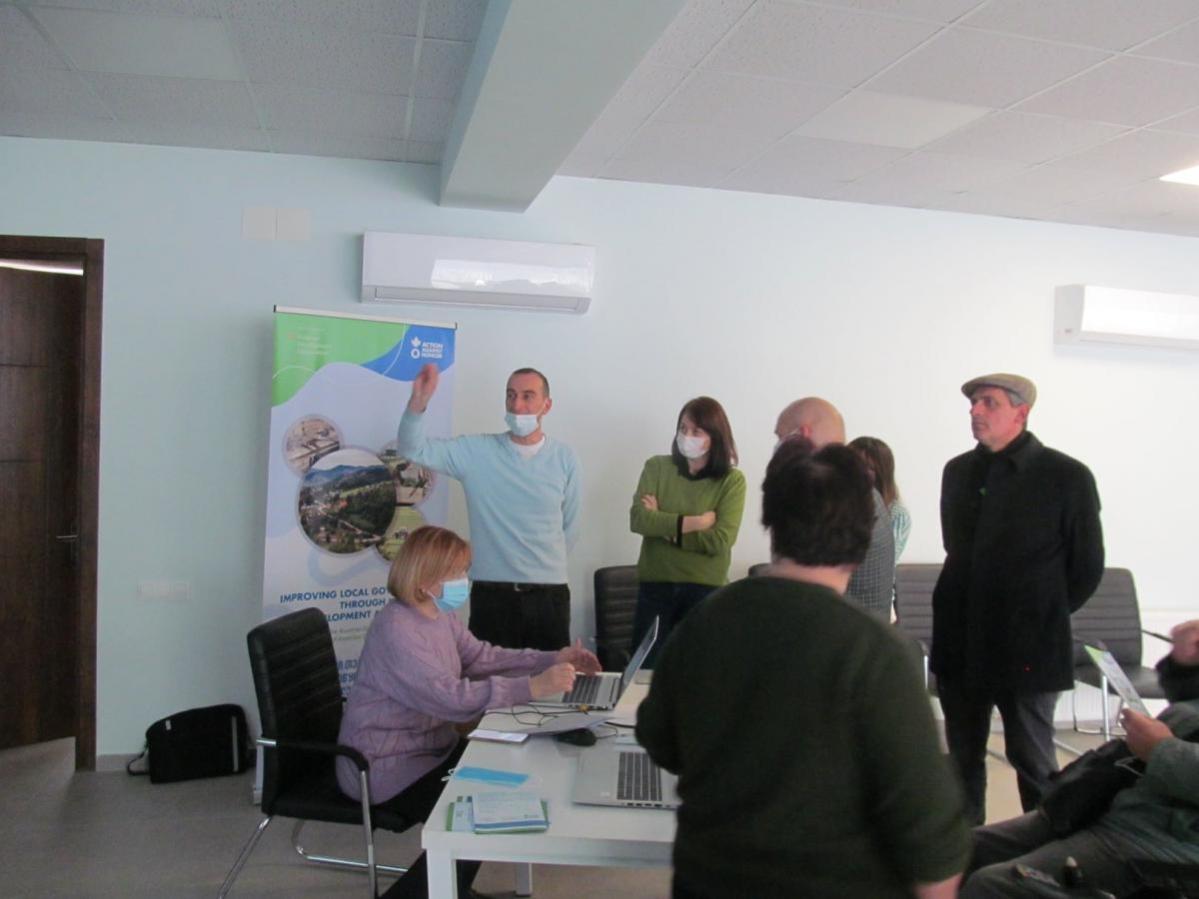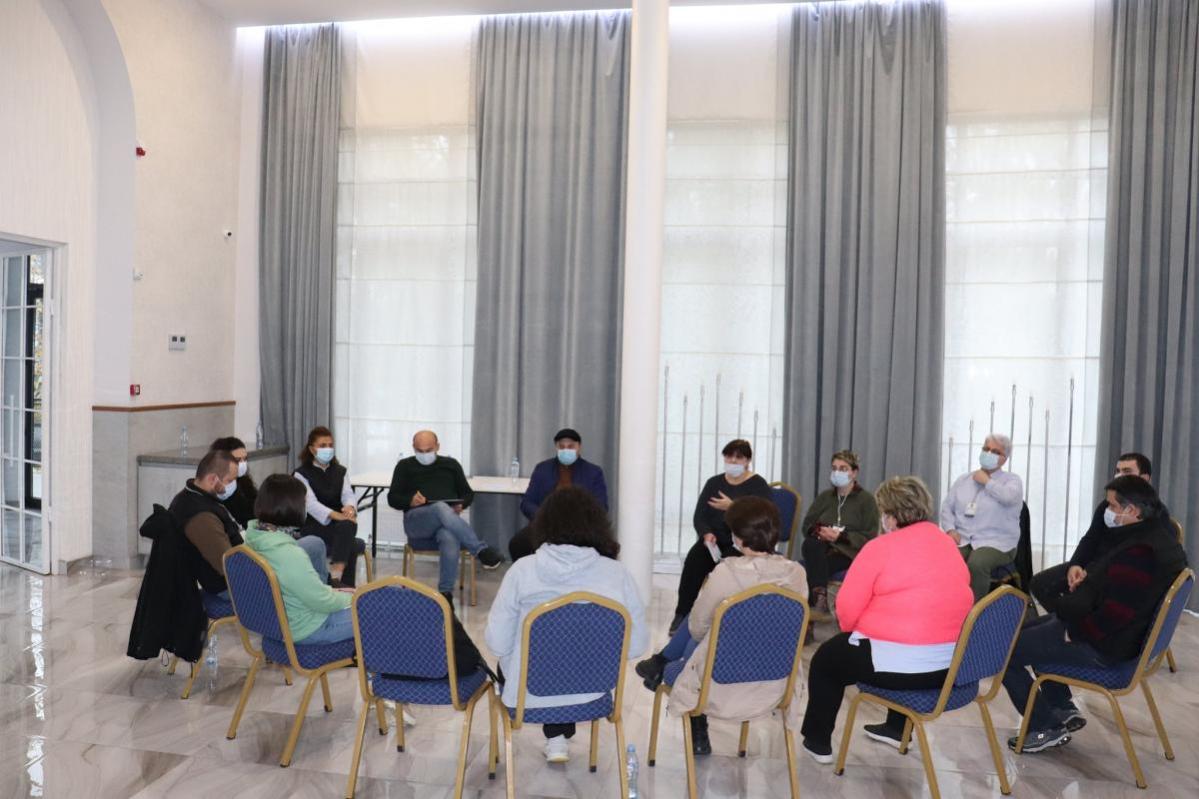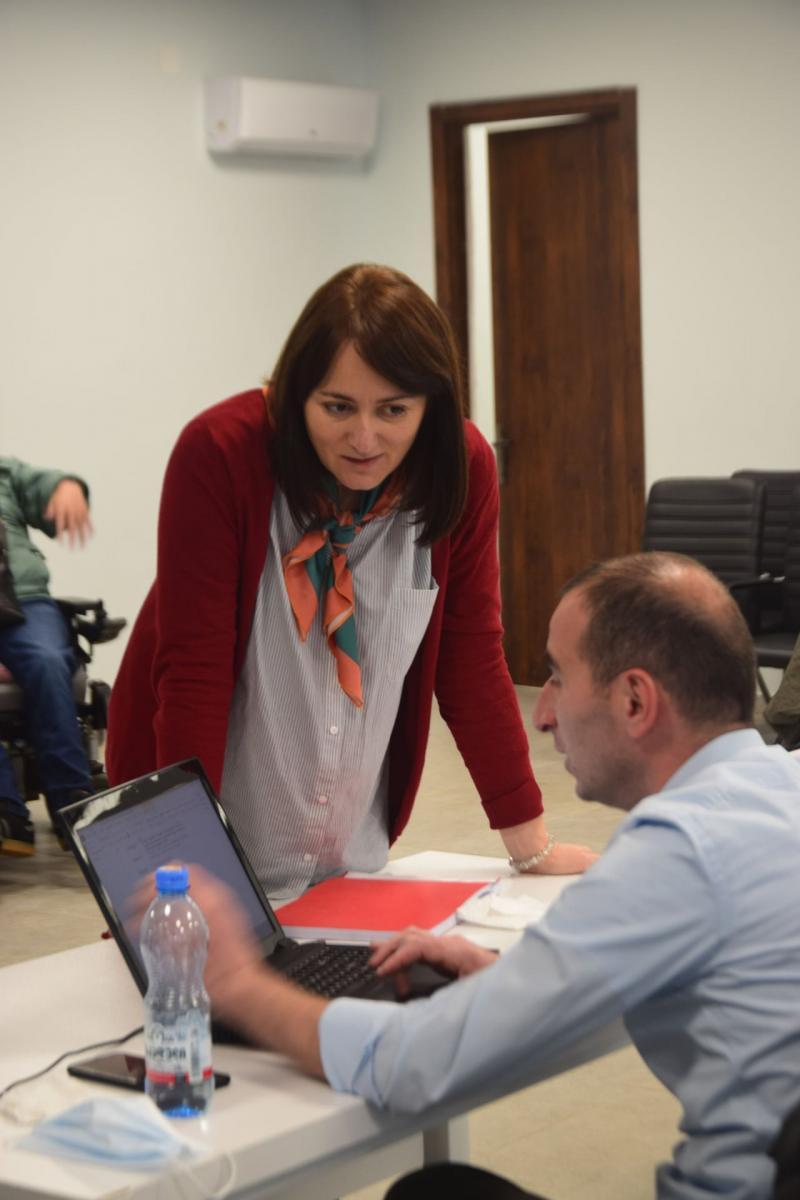

Impressions of Zugdidi Local Action Group.
South Caucasus Mission Intern, Luke Hardy, describes his visit to the Zugdidi Local Action Group.
Now moving into my second month as a Monitoring and Evaluation/Program Intern for Action Against Hunger South Caucasus mission, I was recently able to visit the Local Action Group in Zugdidi Municipality. Located in the Samegrelo – Zemo Svaneti Region in the West of Georgia, the LAG has been established as part of the project “Improving local governance through inclusive development approaches”, implemented by Action Against Hunger and funded by the Austrian Development Agency, with funds from the Austrian Development Cooperation. I was lucky enough to speak with the LAG Executive Board members Tamar Chikava, from the City Hall of the Zugdidi Municipality, and Ana Emukhvari, from the Samegrelo Destination Management Organisation. I also spoke with the Vice President of the Executive Board, Ana Kochua, who works with the NGO People in Need, and the Action Against Hunger Programme Manager, Nino Logua.
It was great to see how the LAG has worked to strengthen the ongoing Community-led Local Development (CLLD) approach in the rural development in the region. I have looked forward to physically seeing how the programme operates and meeting the LAG members I have read so much about in recent weeks. The three main areas in which the project will support the LAG’s development are in: Women’s Economic Engagement and Leadership (WEEL); youth social and economic inclusion; and environmental protection and climate action.

LAG Executive Board Members, and Project Manager Ketevan Ezugbaia, at a previous meeting. Febraury 2022.
Initially, CLLD itself wasn’t well known and needed to be introduced to the local authorities, the local civil sector and the local population, to give a clear understanding of what the LAG is and what the possibilities of being a LAG member entails. Structurally, the LAG consists of public, private, and civil sector representatives, who all work well together. Ms Chikava and Ms Emukhvari detail that in informal LAG meetings questions and issues are discussed from the perspective of different sectors, in a friendly and non-judgemental environment, to identify what the LAG can do for the municipality. These LAG members are currently involved in managing the application and proposal process of the grant component and were previously involved in the creation of the Local Development Strategy which guides the LAG to allocate funds to different priorities such as agricultural development, social care, tourism, culture etc. The LAG is also focused on engaging new people and vulnerable groups in the process. There has been a lot of online engagement on the LAG Facebook page, and further outreach through the distribution of fliers and leaflets.

Zugdidi LAG members participate in a meeting for Georgian Association of Local Action Groups, GALAG. November 2021.
The implementation process of LAG activities hasn’t transpired without its challenges, however. The grant component has been a challenge, with the interest being bigger than the resources available. Engaging vulnerable populations has been challenging and was made more difficult by the onset of COVID-19 pandemic. The LAG program started during the pandemic, and traditional ways of advertisement, such as big informational campaigns could not ensue. However, they have managed to share information to target areas/populations, and there were in fact more applications at the beginning than initially anticipated. The pandemic also challenged the implementation of LAG activities, in terms of conducting workshops and meetings. LAG members preferred to have meetings face to face, as online meetings seemed fruitless and unproductive. The situation was minor to begin with, but as things deteriorated there were numerous government regulations that needed to be followed, such as a social distancing, face mask requirements and the presentation of a negative PCR test. However, it seems the patience and determination of everyone involved outweighed the preliminary challenges caused by COVID-19.
“In the Zugdidi LAG, there were no unsolvable challenges’’ – Nino Logua

Nino Logua, Programme Manager, at a previous Executive Board meeting. December 2021.
Currently, Nino is in the process of supporting LAG members to be engaged in each activity, and to increase the awareness of the LAG in the local community. This will hopefully encourage new members. Because of these joint efforts of LAG members and Action Against Hunger, there will be long-lasting benefits to the community, the LAG will be stronger and more well-rounded, and will be better able to continue after the program has ended.
